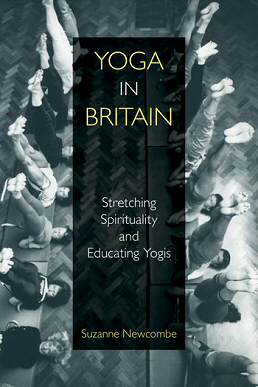The meaning of spirituality has developed and expanded over time, and various meanings can be found alongside each other. Traditionally, spirituality referred to a religious process of re-formation which "aims to recover the original shape of man", oriented at "the image of God" as exemplified by the founders and sacred texts of the religions of the world. The term was used within early Christianity to refer to a life oriented toward the Holy Spirit and broadened during the Late Middle Ages to include mental aspects of life.

Transpersonal psychology, or spiritual psychology, is a sub-field or school of psychology that seeks to integrate the spiritual and transcendent aspects of the human experience with the framework of modern psychology. The transpersonal is defined as "experiences in which the sense of identity or self extends beyond (trans) the individual or personal to encompass wider aspects of humankind, life, psyche or cosmos". It has also been defined as "development beyond conventional, personal or individual levels".

Psychology of religion consists of the application of psychological methods and interpretive frameworks to the diverse contents of religious traditions as well as to both religious and irreligious individuals. The various methods and frameworks can be summarized according to the classic distinction between the natural-scientific and human-scientific approaches. The first cluster amounts to objective, quantitative, and preferably experimental procedures for testing hypotheses about causal connections among the objects of one's study. In contrast, the human-scientific approach accesses the human world of experience using qualitative, phenomenological, and interpretive methods. This approach aims to discern meaningful, rather than causal, connections among the phenomena one seeks to understand.

Eknath Easwaran was an Indian-born spiritual teacher, author and translator and interpreter of Indian religious texts such as the Bhagavad Gita and the Upanishads.

Mostafa Malekian is a prominent Iranian philosopher, thinker, translator and editor. He is working on a project called Rationality and Spirituality. His most important book, that is about spirituality and wisdom, is A Way to Freedom.

Spiritus: A Journal of Christian Spirituality is a biannual peer-reviewed academic journal published by Johns Hopkins University Press. It was established in 1993 as the Christian Spirituality Bulletin: Journal of the Society for the Study of Christian Spirituality and obtained its current title in 2001. It is the official publication of the Society for the Study of Christian Spirituality and covers research on Christian spirituality while fostering creative dialogue with non-Christian traditions. As such, it explores the relationship between spirituality and cultural analysis using the disciplines of history, philosophy, theology, and psychology, among others. The journal includes original articles, reviews, and translations. Readership includes academics as well as a general audience. The editor-in-chief is Steven Chase.
Workplace spirituality or spirituality in the workplace is a movement that began in the early 1920s. It emerged as a grassroots movement with individuals seeking to live their faith and/or spiritual values in the workplace. Spiritual or spirit-centered leadership is a topic of inquiry frequently associated with the workplace spirituality movement.

A matriarchal religion is a religion that focuses on a goddess or goddesses. The term is most often used to refer to theories of prehistoric matriarchal religions that were proposed by scholars such as Johann Jakob Bachofen, Jane Ellen Harrison, and Marija Gimbutas, and later popularized by second-wave feminism. In the 20th century, a movement to revive these practices resulted in the Goddess movement.

Lisa Jane Miller is a professor, researcher and clinical psychologist, best known as a research scholar on spirituality in psychology. Dr. Miller is a tenured Full Professor at Columbia University, Teachers College in the Clinical Psychology Program and Founder of the Spirituality Mind Body Institute, a research-based catalytic hub for seeding a more spiritual society. She has collaborated with the US Pentagon, universities, K-12 schools, the arts and private sector business to create a more spiritually aware civil society. Dr. Miller's published science on spirituality in renewal from addiction, depression and struggle has been widely reported in the media including articles focusing on her research in the New York Times and the Wall Street Journal, as well as in television interviews and podcasts.

The Unitarian Universalist Christian Fellowship (UUCF) is the main group serving Christian Unitarian Universalists within the Unitarian Universalist Association of the United States, whose main office is based in Oak Ridge, Tennessee. The UUCF was founded in Boston, Massachusetts in 1945, and can trace its roots back through the history of North American Christian Universalism and Unitarianism. As its bylaws put it:
We serve Christian Unitarians and Universalists according to their expressed religious needs; uphold and promote the Christian witness within the Unitarian Universalist Association; and uphold and promote the historic Unitarian and Universalist witness and conscience within the church universal.
Thomas G. Plante is the Augustin Cardinal Bea, S.J. University Professor of psychology on the faculty of Santa Clara University and adjunct clinical professor of psychiatry and behavioral sciences at Stanford University School of Medicine. His ideas have been covered in Time Magazine and other news media with regard to sexual abuse by Roman Catholic priests, a focus of some of his research and clinical practice. He has also conducted research on exercise psychology, and on the health effects of spiritual and religious practice.
The Journal of Transpersonal Psychology (JTP) is a semi-annual, peer-reviewed academic journal which is published by the Association for Transpersonal Psychology (ATP). The journal is a seminal publication in the field of transpersonal psychology. According to sources the journal is addressing the interface between psychology and spirituality, and the area of spirituality as a legitimate topic for academic studies.

Psychology encompasses a vast domain, and includes many different approaches to the study of mental processes and behavior. Below are the major areas of inquiry that taken together constitute psychology. A comprehensive list of the sub-fields and areas within psychology can be found at the list of psychology topics and list of psychology disciplines.
"Spiritual but not religious" (SBNR), also known as "spiritual but not affiliated" (SBNA), or less commonly "more spiritual than religious" is a popular phrase and initialism used to self-identify a life stance of spirituality that does not regard organized religion as the sole or most valuable means of furthering spiritual growth. Historically, the words religious and spiritual have been used synonymously to describe all the various aspects of the concept of religion, but in contemporary usage spirituality has often become associated with the interior life of the individual, placing an emphasis upon the well-being of the "mind-body-spirit", while religion refers to organizational or communal dimensions. Spirituality sometimes denotes noninstitutionalized or individualized religiosity. The interactions are complex since even conservative Christians designate themselves as "spiritual but not religious" to indicate a form of non-ritualistic personal faith.

Psychology of Religion and Spirituality is a quarterly peer-reviewed academic journal covering the psychology of religion and spirituality. It was established in 2009 and is published by the American Psychological Association.
Clinical pluralism is a term used by some psychotherapists to denote an approach to clinical treatment that would seek to remain respectful towards divergences in meaning-making. It can signify both an undertaking to negotiate theoretical difference between clinicians, and an undertaking to negotiate differences of belief occurring within the therapeutic relationship itself. While the notion of clinical pluralism is associated with the practice of psychotherapy, similar issues have been raised within the field of medical ethics.
The Journal of Management, Spirituality & Religion (JMSR) is a peer-reviewed academic journal on management, spirituality and religion. It is published five times per year and contains scholarly articles regarding the spiritual and religious aspects of managing and organizing. The journal was established in 2004 and published by Routledge until January 2021. The editor-in-chief is Kathryn Pavlovich.
The World Religions and Spirituality Project publishes academic profiles of new and established religious movements, archive material related to some groups, and articles that provide context for the profiles. It is referenced by scholars, journalists, and human rights groups to provide a scholarly representation of threatened communities.

Yoga in Britain: stretching spirituality and educating Yogis is a 2019 book by Suzanne Newcombe on the history of modern yoga as exercise in Britain in the second half of the 20th century, especially in the period between 1945 and 1980. The book has been warmly received by scholars for its depth of study of the history and sociology of yoga in Britain, and its careful placing of its descriptions in specific contexts of time and place.
B'not Esh is a Jewish feminist collective based in the United States that was founded in 1981, the group sought to define a reconstructed feminist view of the Jewish tradition and defines itself as a Jewish Feminist Spirituality Collective. The group's basic position is that the Jewish spirituality of women is a political struggle.









